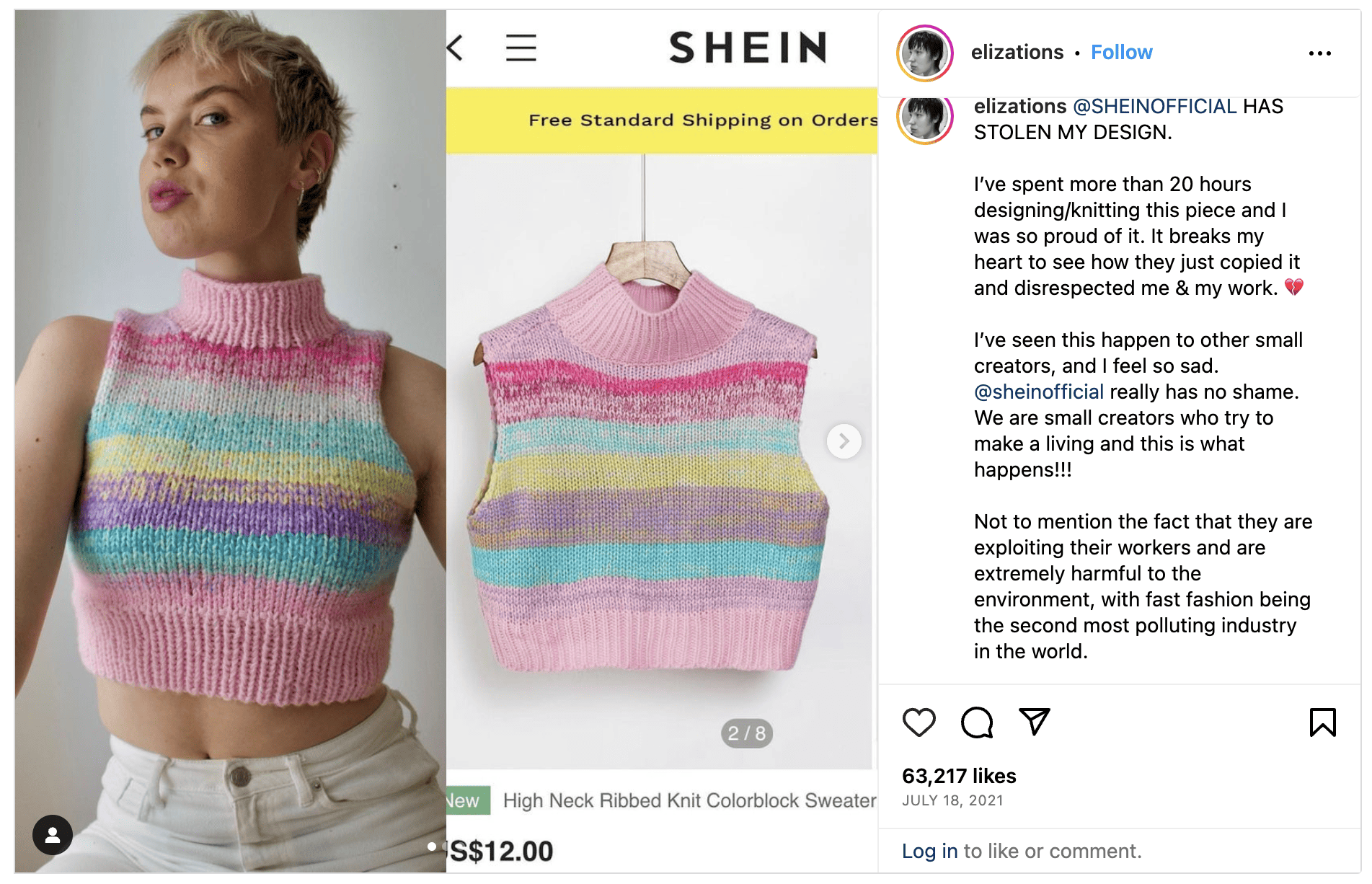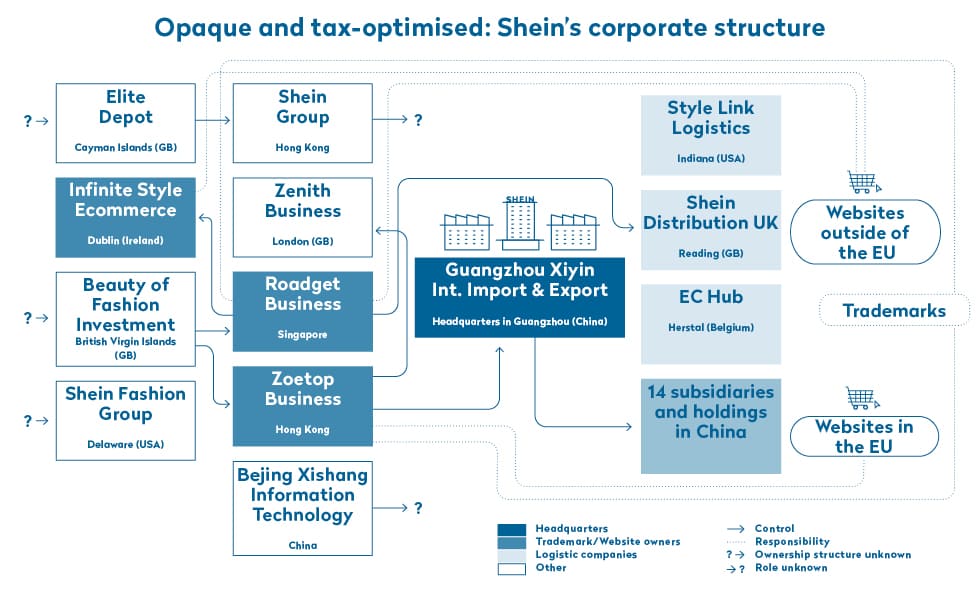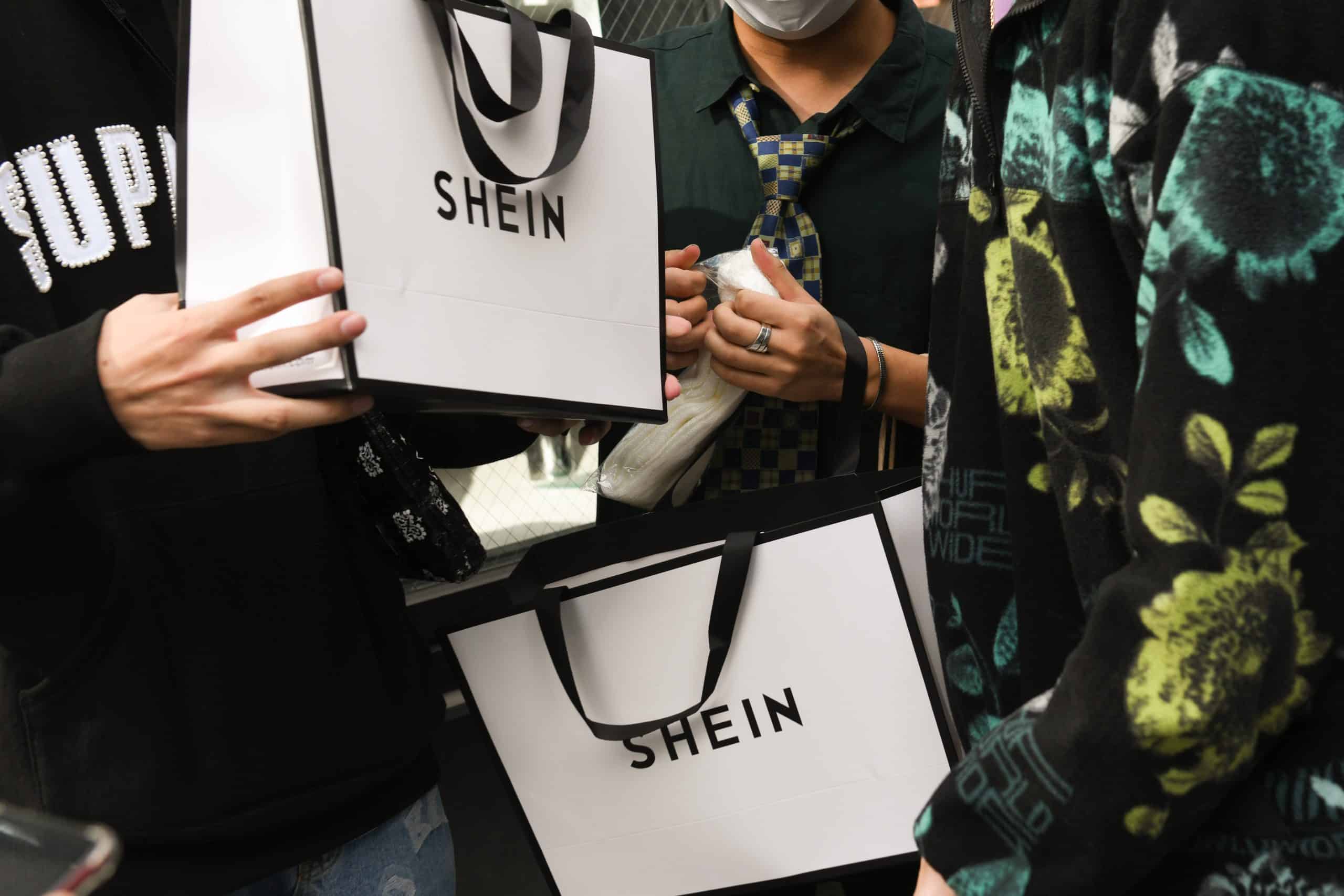A lawsuit is no stranger to Shein. But this time, it might not be just another Tuesday in court for the fast fashion retailer.
As per a complaint filed through the California federal court, plaintiffs Krista Perry, Larissa Martinez, and Jay Baron alleged that “Shein produced, distributed, and sold exact copies of their creative work.”
The primary focus of the complaint was how Shein has allegedly acquired tremendous wealth by committing individual infringements repeatedly as part of a “long and continuous pattern of racketeering,” which shows no sign of slowing down or ceasing.
To wrap it up in a sentence, SHEIN has been slapped with fresh allegations of design theft and racketeering under the RICO Act!
So, what exactly is the RICO Act? How is it allegedly being violated by SHEIN, one of the biggest online shopping platforms in the U.S.A.?
According to the U.S Department of Justice, the RICO Act, or the Racketeer Influenced and Corrupt Organizations Act, is a federal law in the U.S.A. that aims to curb organized crime by supporting the legal tools in evidence collecting by establishing new penal prohibitions and providing enhanced sanctions and new remedies.
This could include a wide array of criminal activities, for instance, trafficking rings and counterfeit operations.
Now, the way Shein’s activities allegedly fall into the violation of this framework is claimed to be through the “egregious copyright infringement” the fashion conglomerate commits regularly. Keep scrolling to read a summary of the official complaint and to see what makes Shein’s activities problematic, if not criminal!
Also Read: Worst Fashion In The World: The Inexcusable And The Unforgivable
SHEIN Slapped With RICO Lawsuit Alleging Copyright Infringement And Racketeering
Shein is facing its umpteenth lawsuit addressing unethical business practices. Not surprising, we know.
The complaint these three independent designers filed against Shein began on a higher note, pointing out that for all the scrutiny it has given to TikTok, it’s surprising that Congress has not considered more dramatic action against the Chinese fast-fashion giant Shein.
According to the complaint, the entire secret algorithm that propels Shein’s production system that analyses micro-trends and supposedly steals and replicates other artists’ designs is designed by Chris Xu, who made Shein the “world’s top clothing company through high technology, not high design.”
The complaint claims that the brand has made billions through a “secretive algorithm” that identifies viral fashion trends, coupling it with a “corporate structure, including production and fulfillment schemes, that are perfectly executed to grease the wheels of the algorithm, including its unsavory and illegal aspects.”

Also Read: Why Did Paige Sue Abby on Dance Moms? Controversial Lawsuit Explained
The file also says that it is “not an exaggeration to suggest that Shein’s pattern of misconduct involves the commission of new copyright and trademark infringements every day.”
This has been crystal clear over the past few years, with a significant amount of small business owners, creators, artists, and independent designers coming out and posting side-by-side image comparisons showing how astonishingly similar their and Shein’s products are.
Let’s say that Shein indeed does copy an independent designer. According to the plaintiffs, the most likely outcome is that the infringement will go unnoticed.
Convinced that the artists are unaware of the infringement, Shein “reaps all the benefits of stealing and featuring the design that its technology had identified as valuable enough to take.”
Once customers clamor for more stock to be produced, the product is reordered and sold in large numbers. All because an independent designer is unaware of the fact that they are being swindled.
Also Read: Dwayne Johnson Faces A 3 Billion Dollar Lawsuit

Let’s say that an independent designer is indeed aware of the infringement and calls the brand out for reparations. What Shein does is apologize, blame an unnamed third party for the misconduct, and report that sales were low in number, sometimes by even fudging numbers.
In turn, Shein then might offer a low-value settlement claiming that sales were not high enough to cause significant financial damage to the aggrieved artist.
For all the plaintiffs who filed the complaint, Shein’s selling of exact copies of their goods for sale as their own has led to financial damages, and this is emphasized in the file.
In Ms. Perry’s case, that is, one of the plaintiffs’ cases, Shein made its offer “as if it were a mom-and-pop operation rather than one of the richest enterprises in the world.”
Shein, as expected, claimed that the product with the stolen design had very low sales numbers and offered Ms.Perry five hundred dollars. Talk about bare minimum effort.

The chart above is a visual representation of why exactly it is extremely difficult for intellectual property plaintiffs to pinpoint who exactly they are supposed to sue. Innocent designers fighting for credit may have attorneys with strong cases but struggle to find an appropriate defendant and “end up settling for less because they are not sure they have the correct party.”
All of the above are just a few allegations from what the complaint has laid out against Shein. Despite it seeming like a lot, this is just the tip of the iceberg!
You can read the complete complaint document here!
Even if one puts a pin on these allegations, Shein’s reputation is still down in the dumps in many eyes. Shein being a fast fashion retail brand, brings in a whole lot of negatives in itself.
Fast fashion brands are well-adored and marketed extensively on social media platforms such as TikTok, Instagram, and many more by influencers who regularly post aesthetic clothing “hauls” as content.
The products Shein offers is priced extremely low, however, the work environment standards, workers’ wage, sustainability, and more are even lower!
Shein produces a disgustingly huge amount of products on a daily, but it stands on the foundation of workers’ abuse, design theft, mammoth-like textile waste pikes, environmental damage, violation of multiple labor laws, and many more unethical practices.
So, in the judicial system, we trust! May the slow fashion revolution take over the world! That’s all there is to say about this one. Wait and find out if karma hits Shein like a hurtling truck or if it narrowly slips through the clutches of the law yet again!
Also Read: Rita Ora Stuns in Sheer Elegance in Transparent Lace Dress at Paris Fashion Week




